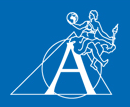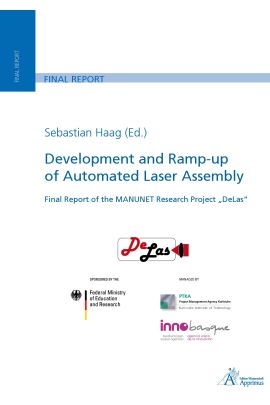In order to respond to increasing competitive pressure from low-wage countries on manufacturing companies in Western Europe, competitive assembly systems need to be developed by combining flexibility, autonomy, and productivity. In high-wage countries, this goal can only be achieved by a high level of automation. Furthermore, automation allows for implementing highly reliable processes and has the potential to increase product quality and improve working conditions at the same time. High-performing modular machine architectures have found their way in every day industrial production. The remaining challenge lies in the efficient planning of complex assembly tasks.
In this context, the objective of the funded research project DeLas was the significant reduction of process development and production ramp-up times for the automated assembly of laser systems and optical modules by bridging the gap between product development and automation control. The approach of the project was to develop and integrate methods and software tools for implementing complex sensor-guided handling and alignment processes into a software toolchain which covers the relevant steps of automated laser assembly. Based on virtual production environments, virtual and real commissioning of processes grew closer together and strengthened the role and impact of offline programming.
The DeLas team focused on the missing links between the commercially available and well-established engineering tools. Therefore, interfaces between the different software systems have been realized. Parallel to the conceptual design and realization of the engineering toolchain, industrial use cases from the assembly of optical systems have been studied for a better understanding of industrial needs. The studies included the complete engineering chain between product specification and process commissioning on an industrial assembly platform. A demonstrator showing a stable assembly process for micro-optical systems has been presented during several events and trade fairs.
The project has successfully shown the potential of better integration of engineering tools and engineering models in the industrial branches of lasers and optics. Main impact can be expected from shortening the time between product design and process commissioning potentially influencing the time-to-market (TTM) and machine utilization in an environment of versatile production requiring frequent commissioning.
| Autor | Haag, Sebastian |
|---|---|
| Lieferzeit | 3-4 Tage |
| Gewicht | 0.135 kg |
| Erscheinungsdatum | 27.09.2016 |
Werkzeugmaschinen
Development and Ramp-up of Automated Laser Assembly Final Report of the MANUNET Research Project „DeLas“
Kurzbeschreibung
Competitive assembly systems need to combine flexibility, autonomy, and productivity. Dynamic markets require efficient planning and commissioning of complex assembly tasks. To meet the challenge, the DeLas team developed an integrated toolchain for the planning and commissioning of highly complex assembly tasks in the field of lasers and optics shortening the time between product design and process commissioning and improving time-to-market (TTM) as well as machine utilization.

